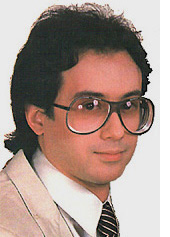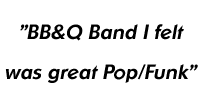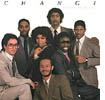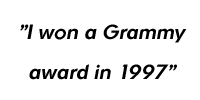Home
 Interviews
Interviews
 Jeff
Bova
Jeff
Bova
An
interview with Jeff Bova
By
Patrik Andersson
A
JOURNEY INTO HIS MUSICAL LIFE
 Born in Washington D.C. in 1953 Jeff Bova got his musical
education at the Berklee School of Music, Boston and at the
Manhattan School of Music, New York were he played keyboards
and Trumpet.
Born in Washington D.C. in 1953 Jeff Bova got his musical
education at the Berklee School of Music, Boston and at the
Manhattan School of Music, New York were he played keyboards
and Trumpet.
In
the 8th grade he joined his first group called "Corduroy
footstep" after the bands original keyboardist had left
for boarding school.
In
1975 he played in a Jazz fusion band called "Flying island"
that also released their first album on Vanguard records that
year. The band only recorded two albums, both on Vanguard
records. DJ Shadow sampled a loop from Flying island on one
of his most recent albums.
When
did you first get involved in Petrus productions?
It
must have been 1981. A friend of mine who played keys with
Ashford and Simpson at the time recommended me.
Besides
Change, BB & Q band and High fashion, what projects were you
involved in during the time with Petrus?
I
was starting to do record dates and jingles. I played on Robert
Gordons Album "Are You Gonna be the One". Mostly local developing
acts during that time. We were very busy rehearsing and touring
most of the time.
What
was your experience of Malavasi and Romani as producers and
songwriters?
I
came in to play my parts after basics were cut so I got to
see how they developed arrangements from the Rhythm section
up. They were a big influence on me. They both had a lot of
energy. Very nice guys.
In
your mind the best production during the years in little macho?
 I
was of course partial to all of Changes tracks. BB&Q Band
I felt was great Pop/Funk. I was not as attached to High Fashion
or the Ritchie Family. But all were from the same source,
so it all had the same creative energy, just different concepts.
We worked on different projects all at once sometimes. We
didn't know at points what tune was going to be suited to
which act. As a song developed it would become evident which
group it would best suit.
I
was of course partial to all of Changes tracks. BB&Q Band
I felt was great Pop/Funk. I was not as attached to High Fashion
or the Ritchie Family. But all were from the same source,
so it all had the same creative energy, just different concepts.
We worked on different projects all at once sometimes. We
didn't know at points what tune was going to be suited to
which act. As a song developed it would become evident which
group it would best suit.
When
did Change became a real group?
 Album
was recorded with all the studio players. When it came time
to promote it, Petrus had to put the actual touring band together
to make it a real promotable entity. If I recall they did
some gigs with the original lineup but it didn't work out
for the long run. Between 81 and 82 they tried some live support
of the record, recorded the 2nd album, organized the official
touring group and members, then released it and the basic
change that you know was unleashed upon the world! To make
the band more group like was what promoters, booking agents
(Norby Walters was ours) needed to get people to feel a connection
to the band.
Album
was recorded with all the studio players. When it came time
to promote it, Petrus had to put the actual touring band together
to make it a real promotable entity. If I recall they did
some gigs with the original lineup but it didn't work out
for the long run. Between 81 and 82 they tried some live support
of the record, recorded the 2nd album, organized the official
touring group and members, then released it and the basic
change that you know was unleashed upon the world! To make
the band more group like was what promoters, booking agents
(Norby Walters was ours) needed to get people to feel a connection
to the band.
Was
the tragic death of Petrus the main reason to that Change
and BB & Q band didn't release any more records after 1985?
I
assume so, but I was playing in Herbie Hancocks Rockit Band
by that time so I was not around when that happened.
How
was the climate between the members/producers during the Change
years? Was there a good working spirit?
Yes,
everyone had the same basic goals. Everyone was a hard worker,
and professional.
Did High fashion release anything else after their 83 record?
I
don't know. If I recall they had started another album but
may not have finished it.
What
did you do after the time with Petrus?
 My
next gig was playing with Nona Hendrix (La Belle). She had
a great band with members of Talking Heads, Duran Duran's
touring band members. I then joined Herbie Hancock's Rockit
Band when Herbie toured to support his hit "Rockit". After
that I had a long career as a Session player, playing with
everyone from Cyndi Lauper, Robert Palmer, Tina Turner, Cher,
Eric Clapton, Meat Loaf, Celine Dion and many others. I won
a Grammy Award in 1997 for Album of the year as a producer
of Celine Dions "Falling into You".
My
next gig was playing with Nona Hendrix (La Belle). She had
a great band with members of Talking Heads, Duran Duran's
touring band members. I then joined Herbie Hancock's Rockit
Band when Herbie toured to support his hit "Rockit". After
that I had a long career as a Session player, playing with
everyone from Cyndi Lauper, Robert Palmer, Tina Turner, Cher,
Eric Clapton, Meat Loaf, Celine Dion and many others. I won
a Grammy Award in 1997 for Album of the year as a producer
of Celine Dions "Falling into You".
What
are you doing today?
I
am producing and Developing new artists. Remixing tracks also.
What
is your point of view on music today on a whole? Are you open
minded for new waves and constellations?
Always.
That's why I am still in this business. Music moves through
cycles but if you understand where artists are coming from
based on their own experiences and how they choose to express
themselves, you can understand what they are trying to say.
All music to me is valid. It is a mirror of the time and place
it's created.
By
PATRIK ANDERSSON 2001
A
great thanks to Mr Bova for his open minded attitude through
out the interview.
Interviewed
on Patriks Soul Funk Special in june 2001 by Patrik Andersson.
The interview has been edited. All rights reserved